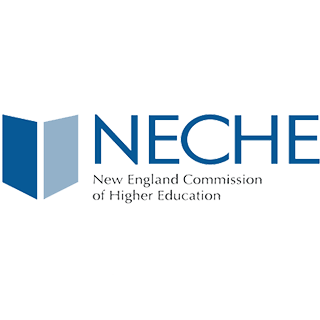For Jazzmen Shipp, Earning a Degree Changed Everything
Business | 2min Read

Do you have your associate degree in a technical field? Are you ready to take the next step in your career – and your education? If so, Southern New Hampshire University's online Bachelor of Science (BS) in Technical Management II holds huge potential for students like you.

To take on leadership roles in technical management, you need management skills. SNHU’s online degree in technical management can help you build the skill set you need to succeed as a technical manager. You'll learn about key business principles and management styles and how they apply to different industries.
With each course you take, you’ll get to apply what you learn to real-world situations. Through class discussions, writing assignments and other exercises, you’ll learn about the many variables that contribute to organizational effectiveness.
Visit the course catalog to view the full BS in Technical Management curriculum.
All undergraduate students are required to take general education courses, which are part of SNHU's newly redesigned program, The Commons. The goal of The Commons' curriculum is to empower you with some of the most in-demand skills, so you can succeed not only in your academic career, but in your personal and professional life too.
Minimum Specifications:
Additional Information:
Our no-commitment application can help you decide if SNHU is the right college for you and your career goals. Apply up until 2 days before the term starts!
Upcoming term starts: May 4, 2026 | June 29, 2026
Attending college online at SNHU can be a life-changing experience. In fact, 93.4% of online students would recommend SNHU according to a 2025 survey with 8,718 respondents.
Our faculty bring with them decades of experience in the management field and exhibit strong leadership both in the classroom and in their professional careers. This experience informs the development of courses and curriculum that can help position graduates for success, no matter what they pursue next.

Sherri Ellison has more than 16 years of experience in project management and currently serves as an assistant vice president at a financial firm in San Diego. She teaches at Southern New Hampshire University as well as Indiana Wesleyan University.
Position
Adjunct Instructor
Joined SNHU
2021
Education
"As an adjunct online instructor, my favorite attribute of SNHU is their supportive learning environment and programs. As a higher learning institution, we at SNHU take pride in putting our students first and remembering that we are engaging and serving real people."

Dr. Zuzana Buzzell began her SNHU career in 2005 as an adjunct faculty member before taking a full-time position in 2014. She has more than 15 years of experience developing and teaching programs in finance, business and economics, and she's worked in hybrid, traditional and online academic programs, government agencies and in the private sector.
Buzzell’s research interests include digital ethics, finance technology, cryptocurrencies, and the future of finance and blockchains. She has published in several journals, conference papers and blogs on topics including mortgage-backed securities, finance technology, Brexit and more.
Position
Associate Dean of Business
Joined SNHU
2005
Education
You’ll take your courses within SNHU’s Brightspace platform. This is where you’ll find your:

At Southern New Hampshire University, you'll have access to a powerful network of more than 400,000 students, alumni and staff that can help support you long after graduation. Our instructors offer relevant, real-world expertise to help you understand and navigate the field. Plus, with our growing, nationwide alumni network, you'll have the potential to tap into a number of internship and career opportunities.
Recently, SNHU has been nationally recognized for leading the way toward more innovative, affordable and achievable education:
Founded in 1932, Southern New Hampshire University is a private, nonprofit institution with over 250,000 graduates across the country. SNHU is accredited by the regional accreditor New England Commission of Higher Education (NECHE), which advocates for institutional improvement and public assurance of quality.
No application fee. No test scores. And no college essay. Just a simple form with basic information. It’s another way SNHU helps you reach your goals sooner.
It's easy, fast and free.
Students who've completed an associate degree (60 credits) in a technical field from an accredited institution are eligible to apply. Applicable technical fields include:
Whether you're applying for an undergraduate or graduate degree, you’ll fill out a form to verify your previous education experience. As part of our admissions process, we'll help you request transcripts from your previous school(s) to see if you can transfer any credits into your SNHU program! (Also for free!)
After reviewing your official evaluation, you can decide if SNHU is right for you! If you choose to enroll, just pick your start date and get ready for classes to begin.
Talk to an admission counselor: 888.327.SNHU | enroll@snhu.edu
SNHU is accredited by the regional accreditor the New England Commission of Higher Education (NECHE). The university also carries specialized accreditations for some programs.
This program and its concentrations are accredited by the Accreditation Council for Business Schools and Programs (ACBSP). Student achievement data can be found on the ACBSP accreditation page.


As a nonprofit university, SNHU offers some of the lowest online tuition rates in the country. And when you work with our Financial Services team, we'll explore ways to help you save even more on your education – and customize a payment plan that works for you.
*before previously earned credits are applied
Tuition rates are subject to change and are reviewed annually.
**Note: Students receiving this rate are not eligible for additional discounts.
Additional costs: Course materials vary by course.
If 60 of your prior learning credits ($342/credit) are accepted toward your bachelor’s degree.
Your remaining tuition cost: $20,520
If 75 of your prior learning credits ($342/credit) are accepted toward your bachelor’s degree.
Your remaining tuition cost: $15,390
If 90 of your prior learning credits ($342/credit) are accepted toward your bachelor’s degree.
Your remaining tuition cost: $10,260
How we estimate your tuition cost:
We look at the cost per credit multiplied by the number of credits you need to earn for a bachelor's degree. Most bachelor's degrees require 120 credits. SNHU allows you to transfer in up to 90 credits, requiring a minimum of 60 credits for this program to be taken at SNHU. This is only a tuition estimator, and doesn't account for other fees that may be associated with your program of choice.
Transfer up to 90 credits toward your bachelor's degree program at SNHU. If you’ve taken one course or many, we’ll evaluate them for you.
Fill out the FAFSA to see if you’re eligible for grants or work-study. (You could also be offered loans, though you’ll have to pay those back later.)
Earn credits in leadership, technology and more – while taking advantage of tuition discounts for active-duty service members and spouses.
Getting free money for college – from SNHU or an outside organization – could help you save hundreds or even thousands of dollars.
Bring in credits from popular options like CLEP, Sophia Learning, Google and other common credit for prior learning (CPL) experiences.
Learn how you can save money with tuition reimbursement from your employer.
Take advantage of an online tuition discount through your organization’s partnership with SNHU. Check with your employer to see if your organization partners with us and if you’re eligible for additional tuition savings and partner education benefits.
As the next decade unfolds, the business world faces unique new realities. Skill gaps, automation and rising competition affect nearly every industry – technical fields included. SNHU’s technical management degree prepares you for the challenges – and the jobs – of the future.
According to the BLS, construction, engineering, manufacturing and transportation offer some of the best job prospects.1 Fields in industrial technology are ripe with opportunities for technical managers with a business degree. Whether you want to step up from your current role or find a new opportunity, you’ll be well-positioned for leadership.
In addition to overseeing the construction phase, construction managers often consult with clients during the design phase to help refine plans and control costs.
These managers coordinate, plan and direct activities involved in creating consumer goods like cars, computer equipment and paper products or commercial goods like lumber, steel and heavy equipment.
These roles may plan, direct or coordinate transportation, storage or distribution activities. Industries include warehousing and storage, as well as truck, freight and water transportation.
Management openings are projected nationally each year through 2032, according to the U.S. Bureau of Labor Statistics.1
Median annual pay nationally for information security analysts as of May 2023, according to the BLS.1 Statistic not based on wage data for SNHU graduates.
Understanding the numbers
When reviewing job growth and salary information, it’s important to remember that actual numbers can vary due to many different factors—like years of experience in the role, industry of employment, geographic location, worker skill and economic conditions. Cited projections are based on Bureau of Labor Statistics data, not on SNHU graduate outcomes, and do not guarantee actual salary or job growth.

I learned a lot about several business strategies, from project management to blue ocean strategies to business model canvassing. It also helped me think much more critically before making important business decisions through the tools and techniques I learned from the program.
Julio Suazo '21
A technical management degree prepares you for management positions in technical fields, such as:
Do you have an associate degree in a technical field and the desire to become a manager? SNHU’s online technology management degree provides the credentials aspiring managers need and employers look for, including project management and supply chain management.
Graduate Julio Suazo '21 agrees.
"This program prepares you to become a better manager and business leader," he said. Suazo was able to take his existing leadership experience and validate it academically while learning new skills to advance his career path.
Technical management jobs are in high demand, according to the U.S. Bureau of Labor Statistics (BLS). Many positions are well compensated, too. Construction managers may experience 5% job growth through 2032, with a median annual salary just over $104,900 in 2023.1
Much of the job growth in construction comes from green building, especially in the solar energy industry. Some jobs in green construction, like solar photovoltaic installers, are seeing a 22% spike in demand.1 Construction managers in high-growth industries like alternative energy are likely to have the best job prospects.
Also called a degree in industrial technology, this is a specialized degree for talented professionals in technical fields. If you have an affinity for technical work and more than a passing interest in becoming a manager, this is your degree.
If you have an associate degree in a technical field (AAS or AS), a bachelor's in technical management could be the next step on your career path – and it's a critical one.
"This program was the best fit that combined technology and business, thus allowing me to be a viable option for a wide range of industries," said Yvette Jorgensen '17, who had earned an AAS in Instrumentation prior to enrolling at Southern New Hampshire University.
SNHU’s technical management degree is tailor-made for associate degree holders in technical fields who want to become managers. You’ll learn the business skills to move your career forward, including:
SNHU offers a technical management degree that provides an in-depth education in project management, supply chain management and core business essentials. Adding this skill set to your toolbox gives you the business and management skills you need to move your career forward.
Because SNHU’s program is an online technology management degree, it offers you the flexibility to fit in coursework around your schedule. You can continue to work while pursuing your degree and demonstrate what you’re learning on the job.
"I also enjoyed the flexibility in schedule and classes so that I could maintain my heavy travel schedule as well as spend time with my family," Jorgensen said.
Definitely! If you work in a technical field, technical online degrees are a practical investment in your future.
A technical management degree expands your business skills in the technical realm and opens up opportunities to become a company leader.
You’ll gain a strong foundation in business, including communications, financial management, project management and strategic management. You’ll learn how to coordinate, plan and direct activities at construction sites, on the factory floor, in warehouses or on trucks, planes or ships.
The strong grasp of management skills you’ll gain from a degree in technology management can also open the door to salary bumps. Technical managers can command high salaries. According to the U.S. Bureau of Labor Statistics (BLS), the median annual salary for construction managers in 2023 was $104,900.1
Beyond the financial rewards, a technical management degree can make you more influential at work. By learning how to manage an organization, you’ll open up your chances to make an impact on its growth. When you can help streamline operations and increase profit margins, you play a key role in fueling a company’s success.
Learn more about the benefits of a technical degree.
Technical management is equal parts technical aptitude and business acumen. It’s any role that involves planning, coordinating and overseeing technical operations. As such, a technical management degree is the bridge from hyper-focused technician to big-picture decision-maker.
A technical manager might work in automotive manufacturing, construction, distribution, storage or transportation. There’s constant pressure in traditional fields like these to adopt new technologies, gain efficiencies and improve profit margins. Technical managers bring the business knowledge to tackle those challenges.
Growing industries like solar and wind energy are bringing fresh opportunities to the field of technical management. The U.S. Bureau of Labor Statistics (BLS) projects that the demand for solar photovoltaic installers will increase 22% from 2022 to 2032 – likewise, wind turbine technicians can anticipate 45% growth.1
Both solar and wind energy are expected to grow rapidly over the coming decade, according to the BLS.1 The trend bodes well for technicians and technical managers alike.
1Bureau of Labor Statistics, U.S. Department of Labor, Occupational Outlook Handbook, on the internet, at:
Cited projections may not reflect local and/or short-term economic or job conditions and do not guarantee actual job growth.